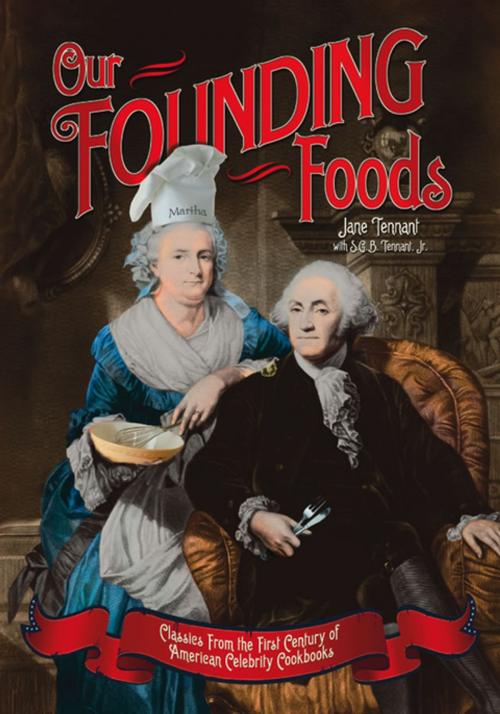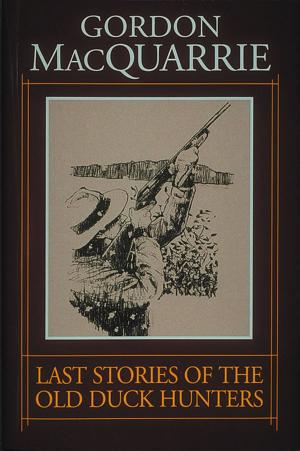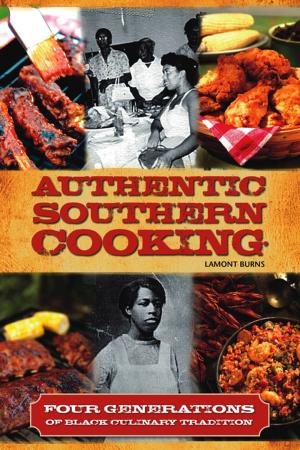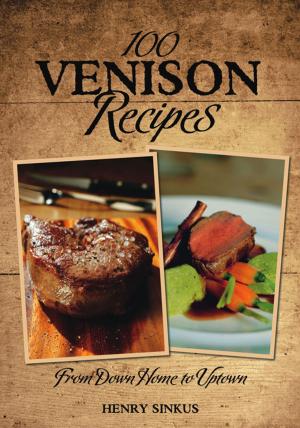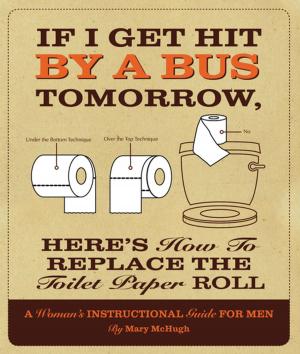| Author: | Jane Tennant | ISBN: | 9781623435516 |
| Publisher: | Willow Creek Press, Inc. | Publication: | July 12, 2014 |
| Imprint: | Willow Creek Press | Language: | English |
| Author: | Jane Tennant |
| ISBN: | 9781623435516 |
| Publisher: | Willow Creek Press, Inc. |
| Publication: | July 12, 2014 |
| Imprint: | Willow Creek Press |
| Language: | English |
American cuisine has absorbed the best and brightest of every culture world wide, and it all began in the early cookbooks of the eighteenth century.
Martha Washington, for instance, our first First Lady, was America's earliest celebrity chef.
Her recipe collection was a beloved family heirloom, lent out to friends one receipt at a time. Others followed.
In the South, Thomas Jefferson's cousin, Mary Randolph, wrote a best selling cookbook many of whose recipes are still used today.
In upstate New York, an enterprising young woman called Amelia Simmons set out the traditional American fare that graced Thanksgiving tables for generations.
Her cookbook was said to be the "Second Declaration of Independence, written on a kitchen table."
And culinary celebrities kept coming, inspired by the bounty of America's fields and streams and gardens and enriched by the many different ethnic traditions at work over the hearth fires.
It is all here in Our Founding Foods: pioneer campfire cookery, the first Mexican American cuisine, the liberated voices of former slave chefs and the Grand Dames of the early cooking schools.
Author Jane Tennant presents over 200 recipes drawn from the best early American cookbooks, all written during the first two hundred years of our culinary history.
Each recipe is referenced to its original source with biographical notes on the chef who published it.
The bibliography to this collection extends back to 1615, when Gervase Markham, a contemporary of William Shakespeare, raved about manchet bread.
From that moment forward the text leaps across America's culinary history culminating with the Fannie Farmer Cooking School in Boston in 1903.
Along the way, you'll also learn what George Washington offered his guests at Mount Vernon; the favorite ice cream of Thomas Jefferson; how the cooks during the Civil War managed without flour; and the recipe for the illicit candy found in the dorms of Vassar College.
Rich with fascinating historical information and stories of American ingenuity in the kitchen, this tour de force is a unique resource for cooks and historians alike.
Martha Washington, for instance, our first First Lady, was America's earliest celebrity chef.
Her recipe collection was a beloved family heirloom, lent out to friends one receipt at a time. Others followed.
In the South, Thomas Jefferson's cousin, Mary Randolph, wrote a best selling cookbook many of whose recipes are still used today.
In upstate New York, an enterprising young woman called Amelia Simmons set out the traditional American fare that graced Thanksgiving tables for generations.
Her cookbook was said to be the "Second Declaration of Independence, written on a kitchen table."
And culinary celebrities kept coming, inspired by the bounty of America's fields and streams and gardens and enriched by the many different ethnic traditions at work over the hearth fires.
It is all here in Our Founding Foods: pioneer campfire cookery, the first Mexican American cuisine, the liberated voices of former slave chefs and the Grand Dames of the early cooking schools.
Author Jane Tennant presents over 200 recipes drawn from the best early American cookbooks, all written during the first two hundred years of our culinary history.
Each recipe is referenced to its original source with biographical notes on the chef who published it.
The bibliography to this collection extends back to 1615, when Gervase Markham, a contemporary of William Shakespeare, raved about manchet bread.
From that moment forward the text leaps across America's culinary history culminating with the Fannie Farmer Cooking School in Boston in 1903.
Along the way, you'll also learn what George Washington offered his guests at Mount Vernon; the favorite ice cream of Thomas Jefferson; how the cooks during the Civil War managed without flour; and the recipe for the illicit candy found in the dorms of Vassar College.
Rich with fascinating historical information and stories of American ingenuity in the kitchen, this tour de force is a unique resource for cooks and historians alike.
American cuisine has absorbed the best and brightest of every culture world wide, and it all began in the early cookbooks of the eighteenth century.
Martha Washington, for instance, our first First Lady, was America's earliest celebrity chef.
Her recipe collection was a beloved family heirloom, lent out to friends one receipt at a time. Others followed.
In the South, Thomas Jefferson's cousin, Mary Randolph, wrote a best selling cookbook many of whose recipes are still used today.
In upstate New York, an enterprising young woman called Amelia Simmons set out the traditional American fare that graced Thanksgiving tables for generations.
Her cookbook was said to be the "Second Declaration of Independence, written on a kitchen table."
And culinary celebrities kept coming, inspired by the bounty of America's fields and streams and gardens and enriched by the many different ethnic traditions at work over the hearth fires.
It is all here in Our Founding Foods: pioneer campfire cookery, the first Mexican American cuisine, the liberated voices of former slave chefs and the Grand Dames of the early cooking schools.
Author Jane Tennant presents over 200 recipes drawn from the best early American cookbooks, all written during the first two hundred years of our culinary history.
Each recipe is referenced to its original source with biographical notes on the chef who published it.
The bibliography to this collection extends back to 1615, when Gervase Markham, a contemporary of William Shakespeare, raved about manchet bread.
From that moment forward the text leaps across America's culinary history culminating with the Fannie Farmer Cooking School in Boston in 1903.
Along the way, you'll also learn what George Washington offered his guests at Mount Vernon; the favorite ice cream of Thomas Jefferson; how the cooks during the Civil War managed without flour; and the recipe for the illicit candy found in the dorms of Vassar College.
Rich with fascinating historical information and stories of American ingenuity in the kitchen, this tour de force is a unique resource for cooks and historians alike.
Martha Washington, for instance, our first First Lady, was America's earliest celebrity chef.
Her recipe collection was a beloved family heirloom, lent out to friends one receipt at a time. Others followed.
In the South, Thomas Jefferson's cousin, Mary Randolph, wrote a best selling cookbook many of whose recipes are still used today.
In upstate New York, an enterprising young woman called Amelia Simmons set out the traditional American fare that graced Thanksgiving tables for generations.
Her cookbook was said to be the "Second Declaration of Independence, written on a kitchen table."
And culinary celebrities kept coming, inspired by the bounty of America's fields and streams and gardens and enriched by the many different ethnic traditions at work over the hearth fires.
It is all here in Our Founding Foods: pioneer campfire cookery, the first Mexican American cuisine, the liberated voices of former slave chefs and the Grand Dames of the early cooking schools.
Author Jane Tennant presents over 200 recipes drawn from the best early American cookbooks, all written during the first two hundred years of our culinary history.
Each recipe is referenced to its original source with biographical notes on the chef who published it.
The bibliography to this collection extends back to 1615, when Gervase Markham, a contemporary of William Shakespeare, raved about manchet bread.
From that moment forward the text leaps across America's culinary history culminating with the Fannie Farmer Cooking School in Boston in 1903.
Along the way, you'll also learn what George Washington offered his guests at Mount Vernon; the favorite ice cream of Thomas Jefferson; how the cooks during the Civil War managed without flour; and the recipe for the illicit candy found in the dorms of Vassar College.
Rich with fascinating historical information and stories of American ingenuity in the kitchen, this tour de force is a unique resource for cooks and historians alike.
